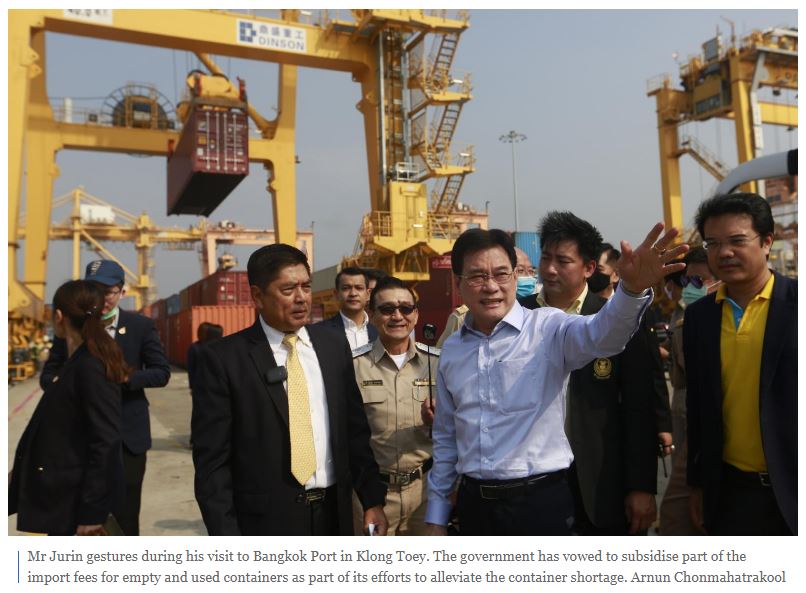Thailand: State to help address container shortage
The government has pledged to subsidise part of the import fees for empty and used containers and has assigned the Office of Trade Competition Commission to monitor any possible monopoly by freight forwarders in a move to alleviate the container shortage for exporters.
Speaking after visiting Bangkok Port in the Klong Toey area and talking with executives of the Port Authority of Thailand, related government agencies and the private sector, Commerce Minister Jurin Laksanawisit said on Monday the ministry has agreed to offer a certain subsidy for import fees for empty and used containers for a period of six months. This would begin in January and continue through June 2021. However, the exact rate of the subsidy has not yet been decided upon.
Import fees for empty 20-foot-long containers are about 1,800 baht each. Thailand’s demand for containers in 2019 stood at 5 million, but demand fell to just 3.5 million this year due to the impact of Covid-19.
Mr Jurin said apart from subsidies for the import of empty containers, the ministry also promised to find ways to reduce local port charges and booking spaces for export containers at key ports. The ministry has also agreed to increase other possible channels, such as bulk carriers, and would accelerate the processes to permit ships measuring 400 metres to enter Laem Chabang deep seaport. A ship of this size is able to carry as many as 15,000 containers.
Poj Aramwattananont, vice-chairman of the Board of Trade, said the container shortage has intensified since June after China announced an easing in its lockdown measures and Vietnam ramped up its exports.
The spread of the coronavirus pandemic worldwide had also resulted in a number of containers becoming stranded in the US and Europe.
More importantly, demand for export containers, particularly for shipments bound for the US and Europe had surged ahead of the year-end and New Year holidays.
“We estimate this year Thailand will face a shortage of over 1.5 million containers and the government’s plans are just to relieve the shortage to a certain extent,” said Mr Poj. “But a bigger and greater problem for Thai exports is now a strong baht. The baht’s strength directly affects Thai export competitiveness notably for farm products which use largely local raw materials.”
Source: https://www.bangkokpost.com/business/2035331/state-to-help-address-container-shortage


 English
English




